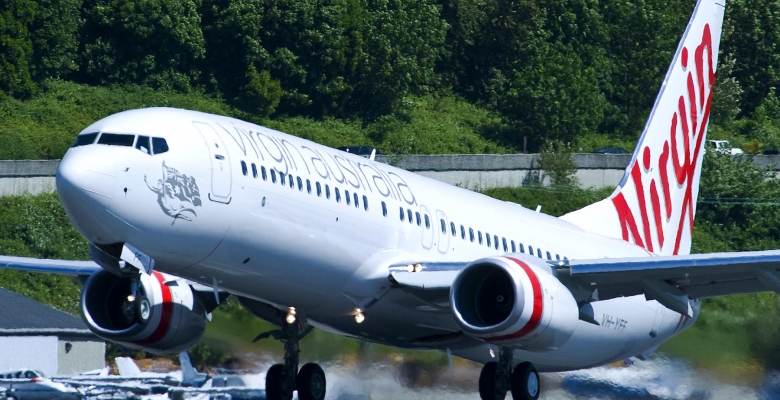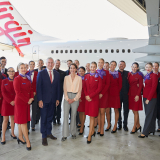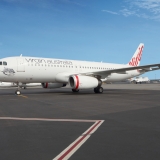Virgin Australia Holdings Limited (ASX: VAH) Trading Update for First Quarter Ending 30 September 2014

Financial Summary - For the period 1 July to 30 September 2014
- Underlying Loss before tax of $45.0 million, an improvement of 18.3% on Q1 FY14
- Statutory loss after tax of $59.1 million
- Group Yield in line with Q1 FY14, with positive Domestic Yield growth
- Underlying CASK growth of below 1%
- Revenue increased 1.3% on Q1 FY14
17 October 2014: Virgin Australia today reported an Underlying Loss Before Tax of $45.0 million for the first quarter of the 2015 financial year, representing an 18.3 per cent improvement over the prior corresponding period. The first quarter is traditionally a seasonally weaker period for Virgin Australia.
Revenue increased 1.3 per cent on the prior corresponding period. Notwithstanding the growth in high yielding passengers, the continued weakness in leisure demand resulted in Group Yield in line with prior year. Revenue Load Factors for the first quarter were slightly lower compared to the 2014 financial year.
The business incurred restructuring charges of $8.2 million and hedging ineffectiveness costs of $14.3 million, reflecting the realisation of gains recognised in prior periods. Underlying Cost per Available Seat Kilometre (CASK) increased by less than 1 per cent, delivered on the back of strong cost programs implemented during the quarter.
Available Seats on Virgin Australia’s domestic operation increased 0.5 per cent on the prior period.
The underlying result excludes Virgin Australia’s share of equity accounted losses of Tigerair Australia amounting to $11.6 million for the first quarter, up from $9.7 million in the prior corresponding period as a result of ongoing subdued consumer sentiment. Available Seats on Tigerair Australia increased 4.5 per cent and Revenue Load Factor increased marginally by 0.5 percentage points on the prior corresponding period.
Virgin Australia Chief Financial Officer Sankar Narayan said: “The results reflect an improved performance compared to the prior corresponding quarter, despite ongoing weak consumer sentiment. It is also important to note that the first quarter of the year is traditionally a weaker demand period compared to the second quarter.
“While the leisure segment has remained subdued, we have delivered further growth in the Corporate and Government segment. We have also demonstrated good progress on containing costs, continuing the downward trend in underlying CASK growth established over the calendar year. We are yet to fully realise the benefits of the changes that have been made to date under the cost program, with further benefits expected in the financial year ahead.
“Tigerair Australia performance for the quarter was impacted by weak consumer sentiment which has a more pronounced impact on low cost carriers, with earnings impacted by aligning capacity with underlying demand.
“As of 30 September 2014, forward intakes for Virgin Australia were up more than 3 per cent on this time last year”, Mr Narayan said.
Definitions
Underlying loss before tax: is a non-statutory measure that represents statutory loss before tax excluding restructuring costs, share of equity accounted losses and the impact of hedging and financial instruments (as defined below). This is a non-statutory measure used by Management and VAH’s Board as a measure to assess the financial performance of VAH.
Virgin Australia reassessed its accounting policy for major maintenance of leased aircraft on 30 June 2014 along with early adoption of AASB 9 Financial Instruments from 1 July 2014. These changes in accounting policy have resulted in the 2014 financial year comparatives to be restated where appropriate.
Group Yield: is a non-statutory measure of revenue divided by Revenue Passenger Kilometres. Revenue excludes charter, freight and loyalty related revenue.
Underlying CASK: Underlying cost per available seat kilometre (CASK) is a non-statutory measure derived from consolidated segment revenue less consolidated segment EBIT excluding time value movement and unrealised ineffectiveness, charter business and non-Regular Passenger Transport costs divided by Available Seat Kilometres of the Regular Passenger Transport business.
Hedging and Financial Instruments: Hedging and Financial instruments is a non-statutory measure that includes unrealised ineffectiveness on cash flow hedges and non-designated derivatives and time value movements on cash flow hedges.






